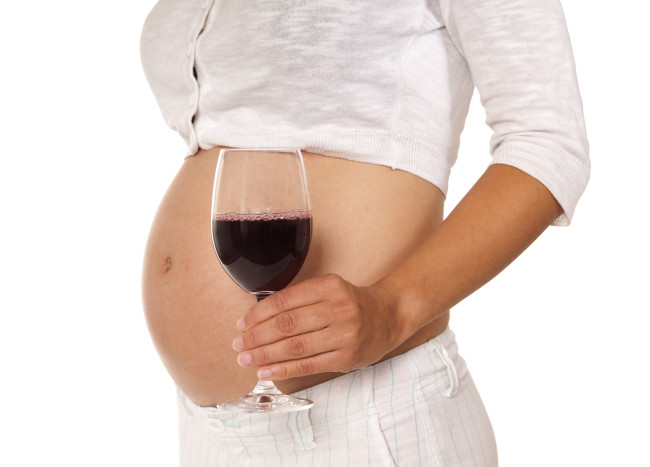Drinking regularly during pregnancy is known to increase the odds of having children with foetal alcohol syndrome, especially if women drink during the seventh and 12th weeks of their pregnancy, according to research.
In the study, a team led by Haruna Sawada Feldman from the University of California, San Diego, researched nearly 1 000 women during their pregnancies over three decades.
Drinking in the second half of the first trimester linked to deficiencies and deformities
They found that drinking during the second half of their first trimester was linked with growth deficiencies in weight and height along with facial deformities that are signs of foetal alcohol syndrome disorders (FASD).
For each extra daily drink, a woman’s baby was 25 percent more likely to have an abnormally shaped lip, 12 percent more likely to have a smaller-than-normal head, and 16 percent more likely to have low birth weight.
Drinking associated with four of the features characteristic of FAS
Study co-author Philip May from the University of North Carolina said: “This paper clearly illustrates that drinking alcohol, especially binge drinking, during the first seven to 12 weeks of gestation is associated with four of the most important facial features characteristic of FAS as well as reductions in birth length and weight that are also characteristic of infants and children with FAS.”
No such thing as a “safe” alcohol level during pregnancy
He also added that there is no such thing as a “safe” alcohol level during pregnancy, since the FAS threshold for every woman and her unborn baby varies. However, studies are conflicting, with recent data suggesting that consuming up to one to two drinks per week while pregnant shows no harm to the child’s development. Yet many health experts urge caution when drinking during pregnancy.
“There is no firm evidence that small amounts of cumulate alcohol consumption do not have an effect on the developing foetus,” stated Janet Fyle, professional policy advisor for Royal College of Midwives in the UK, in an interview with WedMD. “Because of this our advice to women remains the same; if you are planning to become pregnant [or] if you are pregnant, it is best to avoid drinking alcohol.”
(AFP Relaxnews)
Latest posts by Contributor (see all)
- Preeclampsia: Signs and treatment - August 29, 2014
- How having a baby changes your marriage and life - August 29, 2014
- Child’s play could predict expectant parents’ capabilities - August 29, 2014
-
No Comments" href="https://all4baby.co.za/pregnancy/1750/nutritional-guide-pre-pregnancy-pregnancy-breastfeeding-moms/">

Nutritional guide for expectant and breastfeeding moms
-
No Comments" href="https://all4baby.co.za/pregnancy/nutrition-and-exercise/1090/drinking-pregnancy-glass-wine-ok/">

Drinking during pregnancy: Is a glass of wine ok?
-
No Comments" href="https://all4baby.co.za/pregnancy/planning-for-baby/521/guidelines-healthy-pregnancy/">

Guidelines to a healthy pregnancy
-
No Comments" href="https://all4baby.co.za/uncategorized/476/essential-vitamins-minerals-pregnancy/">

Stock up on these vitamin rich foods during pregnancy


 Saving...
Saving...